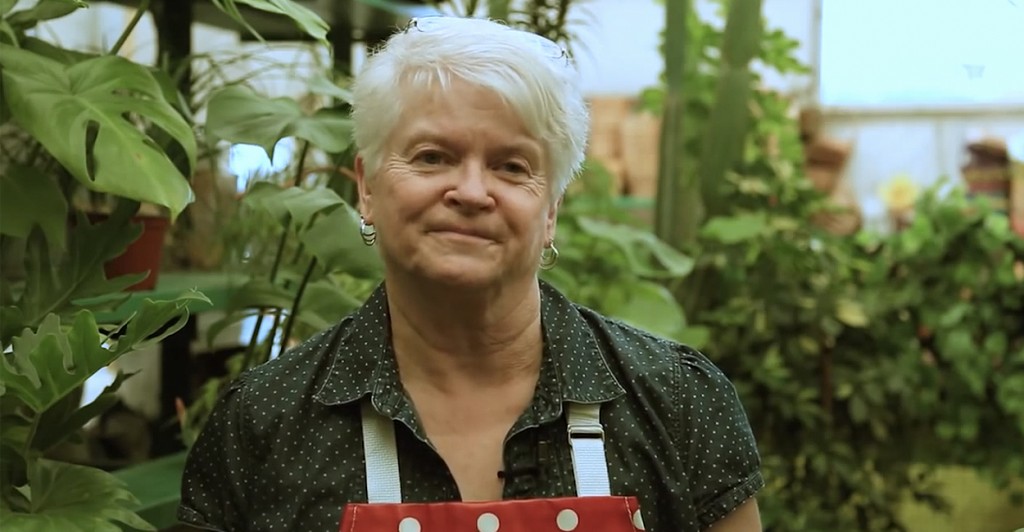State Says 70-Year-Old Flower Shop Owner Discriminated Against Gay Couple. Here’s How She Responded.
Kelsey Bolar /
A judge in Washington state ruled this week that a 70-year-old florist who declined to make flower arrangements for a gay couple’s wedding violated the state’s anti-discrimination and consumer protection laws.
In a phone interview with The Daily Signal, Barronelle Stutzman said the decision—and its accompanying fines—will put her flower shop out of business, or worse.
After the fines and legal fees, “There won’t be anything left,” Stutzman said.
“They want my home, they want my business, they want my personal finances as an example for other people to be quiet.”
Stutzman owns Arlene’s Flowers, which is a small flower shop in Richland, Wash. She has been in the industry for over 40 years, for the most part serving customers regardless of their sexual orientation.
But in March 2013, when Robert Ingersoll asked Stutzman to design floral arrangements for his same-sex wedding to Curt Freed, she declined, citing her Christian faith.
“I put my hand on his and said, ‘I’m sorry Rob, I can’t do your wedding because of my relationship with Jesus Christ,’” Stutzman said. “We talked a little bit, we talked about his mom [walking him down the aisle]…we hugged and he left.”
Stutzman enjoyed a close relationship with Ingersoll, serving him for many years, and never expected what would happen next.
Following their conversation, Washington’s attorney general told Stutzman that her decision was in direct conflict with a state law that ensures citizens freedom from discrimination, and pursued a lawsuit against her.
The anti-discrimination measure prohibits places of public accommodation—which officials say includes Arlene’s Flowers—from refusing service to customers on grounds of race, creed, sexual orientation and physical disability.
After Washington State Attorney General Bob Ferguson filed a lawsuit against the florist, the American Civil Liberties Union filed another suit on behalf of the couple.
The suits, since consolidated into Arlene’s Flowers v. Ferguson, were filed in Washington’s Benton County Superior Court.
“Religious freedom is a fundamental part of America. But religious beliefs do not give any of us a right to ignore the law or to harm others because of who they are. When gay people go to a business, they should be treated like anyone else and not be discriminated against,” said Sarah Dunne, American Civil Liberties Union of Washington legal director.
On Wednesday, ruling in favor of the plaintiffs in both cases, Benton County Superior County Judge Alexander C. Ekstrom agreed, stating in his 60-page opinion:
No court has ever held that religiously motivated conduct, expressive or otherwise, trumps state discrimination law in public accommodations. Religious motivation does not excuse compliance with the law.
Contesting the decision, Stutzman said the state is taking away one of her “basic rights, and feels that she is being used as a case example after the state of Washington legalized same-sex marriage in 2012.
She and her attorney, Kristen Waggoner of Alliance Defending Freedom, plan to appeal the court’s decision within the next 40 days.
In the meantime, Stutzman faces a fine of up to $2,000 for violating Washington’s anti-discrimination law and a separate fine of $7.91 (which Ingersoll and Freed say is the cost of driving to find a new florist).
What’s likely to cripple her, though, are attorney costs and fees, which Alliance Defending Freedom estimates to be seven figures.
“They’re taking everything because I disagree with their stand,” Stutzman said.
That’s not constitutional, nor is it right. They basically want to strip me [of my rights] so it’s an example to other people to be quiet.
Stutzman’s lawyer told The Daily Signal that the ruling violates her client’s right to free expression and speech.
“She’s having to use her heart, her mind and her hands to create something that’s unique to celebrate same-sex marriage,” said Waggoner, adding:
The government telling you that you have to be quiet is one thing. It’s not a good thing. But the government telling you that you must speak—that you must express a message—that is frightening. And it will affect everyone whether they’re religious or not.
In a joint statement to press, Freed and Ingersoll said they felt betrayed by Stutzman’s decision not to serve them.
“We were hurt and saddened when we were denied service by Arlene’s Flowers after doing business with them for so many years,” they said, adding:
We respect everyone’s beliefs, but businesses that are open to the public have an obligation to serve everyone.
When asked her response to the couple’s statement, Stutzman said:
“I did serve Rob. It’s the event that I turned down, not the service for Rob or his partner.”
If she could speak with Ingersoll again, Stutzman said, “I would love to give him a hug and tell him things are going to be OK.”
Indeed, while she stands by her decision, Stutzman said she still thinks “the world” of her friend and longtime customer.
I had a good relationship with Rob and I served him for years. We did have a personal relationship, and I think the world of him. We just disagree on what marriage is.



